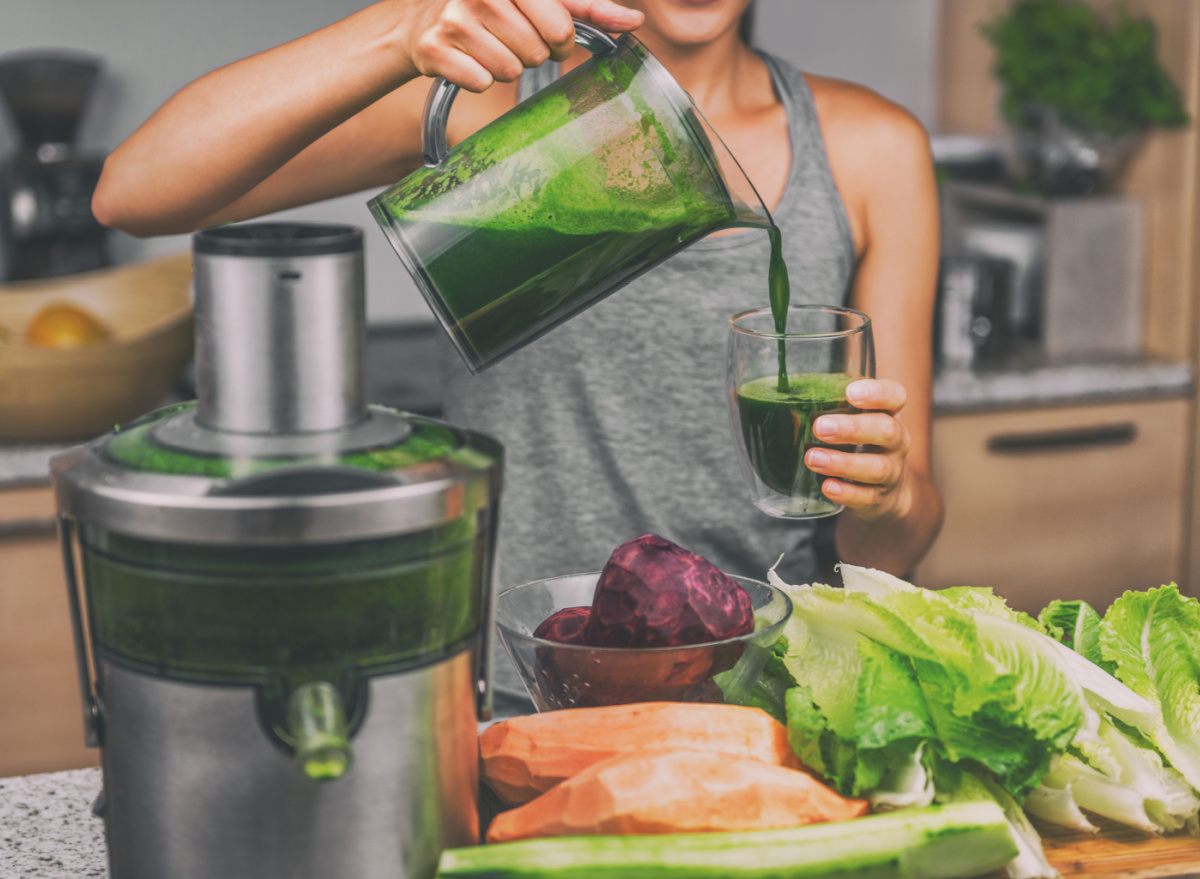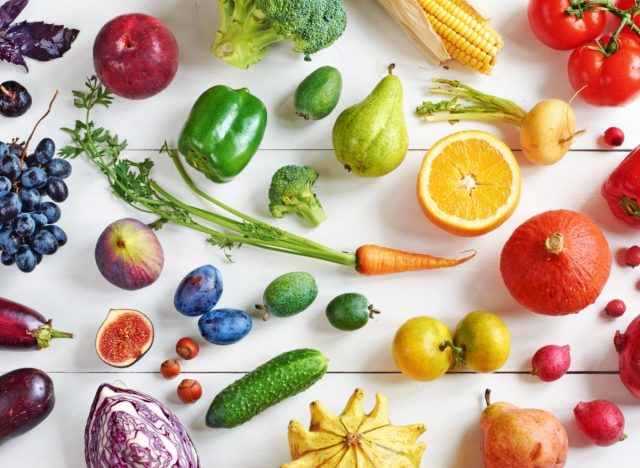Are 'Detoxing Foods' a Real Thing? How Your Body Actually Flushes Toxins

"Detoxing" has become a trendy word in the wellness space. As a potential solution for people who have been eating too much sugar, have completely given up on their diet for a while, or who simply want to cleanse their bodies of whatever they consider to be a toxin, detoxing foods and diets are certainly having a moment.
But are there really foods that rid the body from toxins, or is this just one more bogus claim made at the hands of the wellness industry?
How your body rids itself from toxins
Before we dig into whether eating certain foods can truly detox the body, we first need to have an understanding of how the body works when toxins are in the body in the first place.
The word "toxin" has different meanings depending on who you ask. In conventional medicine, the term generally refers to drugs and alcohol, and detoxing means getting a person to stop taking these substances and ridding the body of them as well. But in other circles, toxins refer to pollutants, heavy metals, sugar, and other components that enter our bodies.
The human body has a highly sophisticated mechanisms for eliminating toxins. The liver, kidneys, gastrointestinal system, skin and lungs all play a role in the excretion of unwanted substances. The pathways used for detoxification depend on the particular chemical, although they include conversion to a less toxic form, metabolism to produce a water-soluble form of the toxin that can be urinated out of the body, conjugation to allow for the toxin to be released via a bowel movement, and the ability of the body to bind heavy metals.
So, if you have functioning organs, your body is already working to rid the body of what some people deem to be "toxins." (Although, they aren't harmful to our bodies unless we take in certain large quantities. Remember—it's the dose makes the poison).
"These chemical reactions that help the body 'detoxify' are heavily nutrient-dependent and rely on nutrients including B2, B3, B6, B12, and folate as cofactors," Melissa Azzaro, RDN, LD, a registered dietitian and podcast host at Hormonally Yours, explains. She added that antioxidants, magnesium, choline, protein and water can also play positive roles.
However, certain pollutants like DDT and metals like lead are not easily removed from the body and can take years to break down. So, no matter how healthy and functioning your body is, these items can remain in your system for many years, regardless of what you eat or do to combat this.
Can foods be detoxing?

There is currently no evidence to support the use of most commercial detox diets for removing toxic substances from the body. The main health risks of detox diets relate to severe energy restriction and nutritional inadequacy. Plus, they can be stressful to follow, and may result in feelings of deprivation—ultimately opening the door to overeating once the "detox diet" is complete.
Detox dieters are also at risk of overdosing on supplements, laxatives, diuretics or even water. One example of this is a 19-year-old man who developed serotonin syndrome after following a detox protocol he found online, with the aim of ridding his body from MDMA.
However, there are some studies suggesting that certain nutritional components may have detoxification properties. For example, there is evidence that coriander, malic acid (found in grapes and wine), citric acid (found in citrus fruits), succinic acid (found in apples and blueberries), citrus pectin (found in the peel and pulp of citrus fruits) and chlorella (a type of green algae) exhibit natural chelating properties, suggesting that they may be useful for the elimination of certain toxic metals. Although some of these interventions need well-designed human studies before a firm recommendation can be established.
Selenium supplementation has been shown to reduce the toxic effects of mercury in mammals, birds, and fish. And one study of long-term mercury exposed individuals in China found that three months of selenium supplementation almost tripled the urinary excretion of mercury, suggesting that this intervention helped the body rid itself, or "detox," from this metal.
One noteworthy study reported that consumption of tropical fruit could reduce mercury levels as a result from eating fish in the Brazilian Amazon. This study showed that for the same levels of fish consumption, eating tropical fruit was associated with a lower level of mercury in the hair, suggesting that the body has similar lower levels as well.
Azzaro adds that cruciferous vegetables, like cabbage, brussels sprouts, and our beloved cauliflower, help support phase 1 detoxification in the liver. Phase 1 detoxification is the first step in a natural process in which the liver uses a pathway to change a toxic substance, like a drug, into a less toxic substance that is easier for the body to excrete. Azzaro also claims that green tea and turmeric may offer support for the body's natural ability to "detox," as well.
Eating habits that support detoxification
When focusing on freeing the body from toxins, it is important to keep in mind that it is nearly impossible to be toxin-free, thanks to the world that we live in. Between the mercury found in the oceans, the pollution that is in our atmosphere, and the medications many of us rely on to keep our bodies functioning properly, toxins are going to exist in our bodies no matter which diet we follow.
To reduce our body's toxin levels, the best thing to do is try and limit your exposure to these items in the first place. Opt for lower mercury fish when you have a seafood meal, wash your produce well to remove any pesticides, and limit or avoid alcohol consumption.
"The bottom line is that eating a nutrient-dense diet high in antioxidant-rich fruits, vegetables, and other foods like green tea and turmeric may help support our liver to do its job more efficiently, help your body bind certain metals, or perform other processes that help our bodies rid themselves of toxins," Azzaro shared. She reiterates that while these foods won't "detox" you directly, they can help your body perform its job efficiently to rid itself of components that aren't benefiting your health.
So, if you want to detox and stick to a remedy that has evidence backing it, skip the expensive "detox cleanses" that may be low in calories, protein, and other important nutrients. Instead, lean on foods that may help your body do its detoxing job—like cauliflower, blueberries, citrus, and broccoli—while avoiding exposure to metals, alcohol, pesticides, and other potentially harmful compounds. Also, drink adequate water to encourage the elimination process, since our bodies rid itself of these compounds via our urine, sweat, and stool. Additionally, limit ultra-processed foods in your diet.
Taking these steps will be a more sustainable way to support your natural detoxification process with very little risk. And it will be a lot more economical than following that trendy detox challenge you found online, too.








